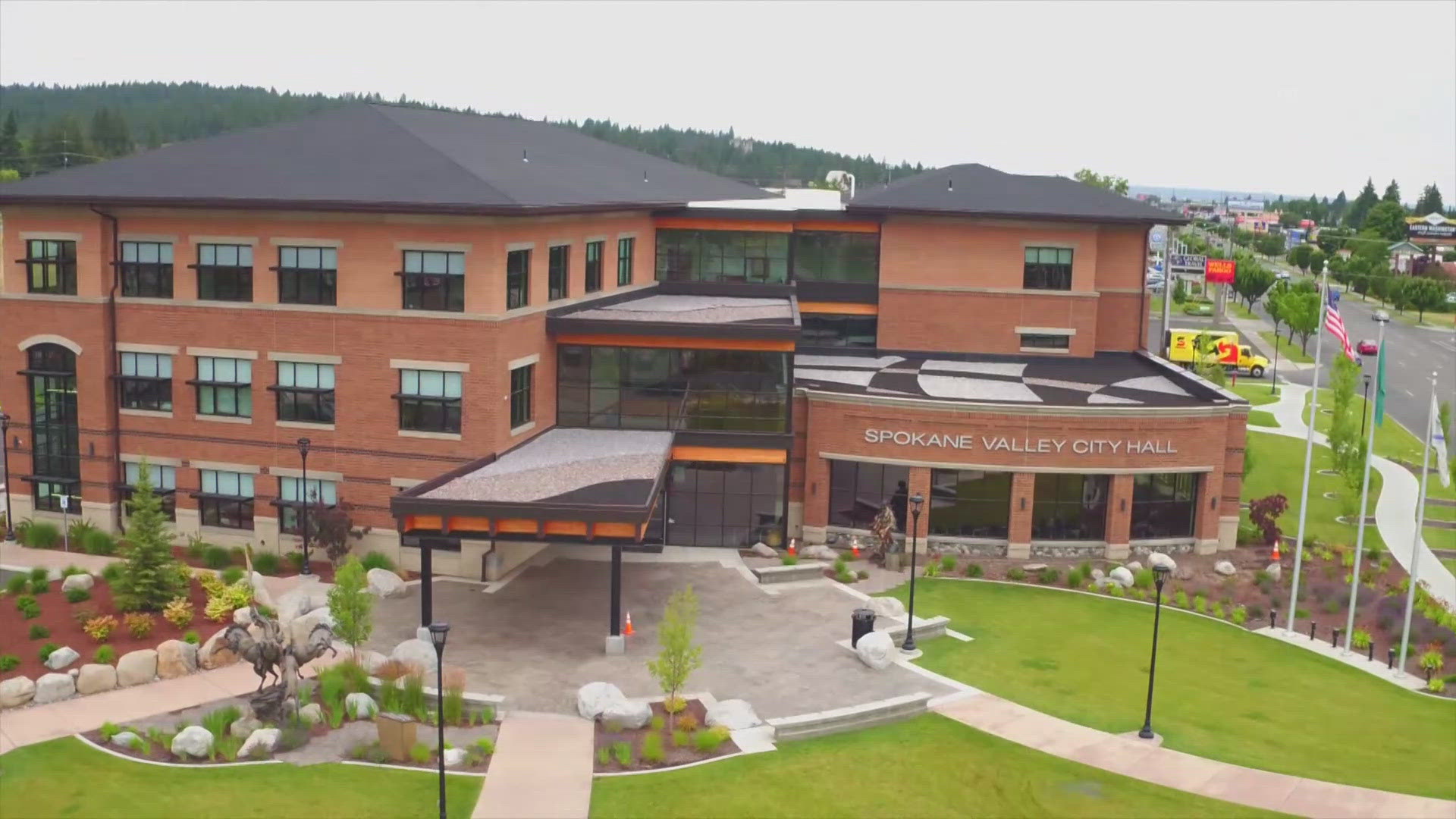SPOKANE VALLEY, Wash. — Spokane Valley City Council passed an ordinance Tuesday night which now makes public camping on City property a misdemeanor.
This includes all of Spokane Valley's public parks.
Anyone who is caught sleeping overnight on Spokane Valley property or its public parks can face up to 90 days in prison and/or a $1,000 fine.
Spokane Valley City Council previously passed legislation prohibiting camping on City-owned property using facilities and/or camping paraphernalia.
Spokane Valley City Council also received an update on the Spokane region's new homeless housing plan for the next five years at Tuesday night's meeting. The current plan is set to expire at the end of this year.
A five-year homeless housing plan is required for the Spokane region to receive state and federal funding related to homelessness. The draft of the new plan before Spokane Valley City Council Tuesday night outlines the new objectives the region needs to meet, which includes the following:
- Promote and equitable, accountable, and transparent homeless crisis response system
- Prioritize those with the greatest barrier to housing stability and the greatest risk of harm
- Prevent episodes of homelessness whenever possible
- Seek to house everyone in a stable setting that meets their needs
- Strengthen the homeless provider workforce
The plan includes several actions to meet the identified objectives. Such as developing and maintaining a "By-Name List" (BNL) as part of the objective to promote a homeless crisis response system. This is a real-time list of all people in each subpopulation experiencing homelessness such as youth, chronic singles and veterans. The plan says this is a known best practice because the robust data helps coordinate access and service prioritization.
The proposed plan would also create a system-wide "move on strategy." According to the proposed plan, this strategy would help identify when a client is ready to move on from permanent supportive housing (PSH) with intensive services and into a more independent environment. The plan says this would free up a supportive housing bed for another vulnerable individual.

